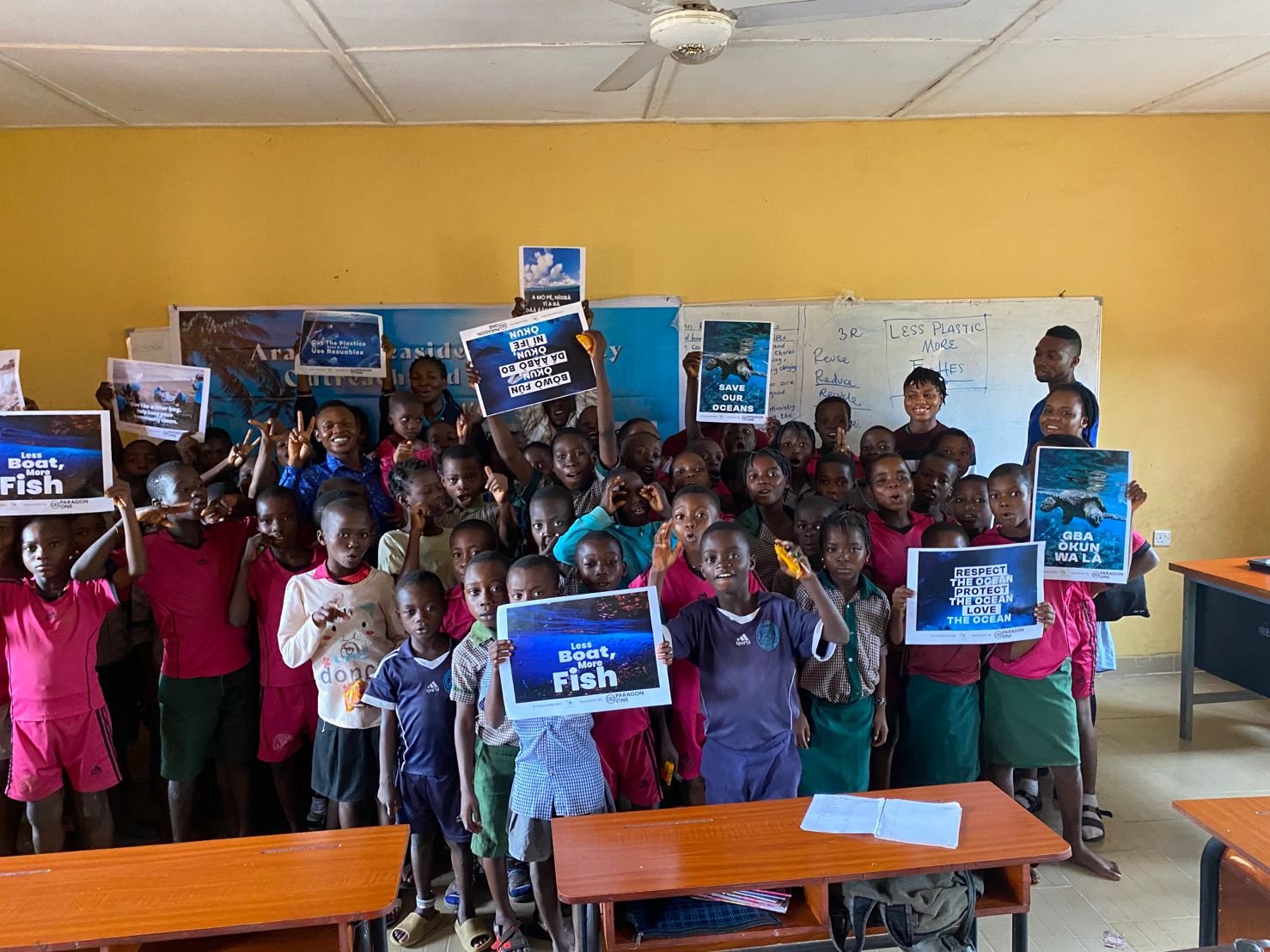Photos and Piece by: Samuel Fajana
Many communities are directly impacted by climate change, or in other words, they experience the first or worst impact of climate change, such as flooding, pollution, climate change migration, rising sea levels, heat waves, forest wildfires and many more. These made vulnerable populations are referred to as ‘Frontline Communities'; these can be people of low income, people of colour, people with less access to resources, gender identity, etc. Frontline communities are mostly neglected when conservation solutions are being designed. Despite these communities being the most impacted by climate change, their opinions and perspectives don't count during policymaking.
LEAVING NO ONE BEHIND - CASE STUDY OF ARAROMI SEASIDE
The story of Araromi Seaside - a tranquil local coastal community that embodies the rhythms of the sea located in the Ilaje area of Ondo state, Nigeria is one that is perceived to represent the fate of several frontline communities in Nigeria, Africa and several parts of the world. It has an area of 1,318 km² and a population of 290,615. It has a shoreline covering about 180km, making Ondo State the longest coastline in Nigeria. The area’s vegetation is predominantly mangrove swamp, with low grasses covering an expanse of undulating lowland of mud and silt deposits in the south and rainforest vegetation.
Araromi Seaside is a community where fishing is a major occupation, and its livelihood depends solely on marine resources. A community that believes in the ocean's self-purification, which has led to waste finding its way into the depths of the sea without question. The very ocean they rely upon for fishing is filled with more plastics than fish, with yearly experience of flooding that leaves them with losses.
Speaking with Araromi Seaside residents during my reconnaissance visit made us realize several conservation organizations and NGOs approached these people with solutions without their consent, which threatened their heritage and ownership of the marine body they possess in their care.
“Every conservation strategy and solution that doesn’t seek the perspectives, indigenous knowledge and cultural beliefs makes the vulnerable community feel less important and unseen while limiting the impact and sustainability of the solutions.”
Through launching the Climate Education Bootcamp, we educate, sensitize, and empower this community on eco-friendly actions, proper waste disposal and recycling, community-led cleanup programs, and advocacy training. This boot camp has positively impacted more than 600 people, including schoolchildren, youths, fishermen, market vendors, community leaders, and locals who were educated on climate change, ocean protection, and advocacy. This also facilitated a hands-on skill acquisition training with 17 youths and 35 school kids on recycling plastic garbage into useful and marketable crafts that have added to their skills and source of livelihood besides fishing. The bootcamp project has raised a generation of young advocates for local-based solutions and champions of community-led conservation initiatives.
IMPACT AND SUCCESS STORIES
Here are the major wins and impacts recorded following the climate education bootcamp:
More than 600 locals learned about climate change, its impact, and their roles in embracing nature-based solutions.
11 waste bags of PET bottles and marine debris from the seashore were recovered through community-led cleanup.
Empowered 17 youths, 35 secondary school kids and 5 women with plastic recycling skills to create art crafts from PET Bottles and waste.
Facilitated policy negotiation meetings with community leaders and fisher folks to implement regulations towards sustainable fishing practices.
Inaugurated Ocean Ambassadors club in the community school that is raising young changemakers through knowledge sharing and capacity building to lead conservation actions within the community.
Involving the residents of Araromi Seaside in the conservation effort contributed to the success of the initiative. The opportunity of letting them lead and collaborate with several activities gave them a sense of ownership and importance in the process - which led to progressive behavioural changes in waste disposal methods. It also allowed the fisher folks to embrace sustainable fishing practices.
Conservation can only be successful when we put frontline communities at the heart of it. Connecting the tales of Araromi Seaside to the global effort to achieve sustainability goals globally is a beacon of hope and a testament to the power of united purpose when the communities that suffer the critical impact of climate change hold a significant role in the process of solving these problems. More effort should be made globally to support frontline communities and offer them the opportunity to own and lead conservation efforts through local and nature-based solutions, involvement in policy-making and capacity-building platforms.
CONCLUSION
Implementing nature-based solutions should include people, especially the frontline communities. Success can only be achieved when communities are at the heart of conservation efforts.
Ensuring local communities champion climate solutions will increase the impact and sustainability of conservation initiatives.
Empowering frontline communities through acknowledging indigenous knowledge, community effort, and climate education will help us create a society, a community, and a world that doesn’t leave people behind in the fight against climate change.
A Call to Action: This blog is more than just a collection of stories; it's a clarion call for inclusion, empathy, and action. It's a reminder that effective conservation solutions can only be designed when all voices, especially those of the frontline communities, are heard and valued.












